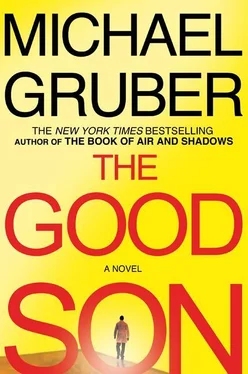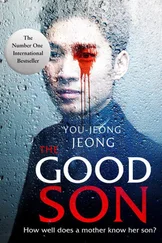Idris utters something underneath his breath. She sees the mask drop into place and he rises with one swift motion. In a stiff, harsh voice he says, “But after all, it is only a dream and dreams are not real life. They are of no account in real life.”
“Nor is the world to come a part of real life, yet the Prophet, peace be with him, told us to value it above every other thing. You have been given a great gift, Idris Ghulam. God will not be pleased with you if you throw it away.”
The man’s fists clench and he seems about to say something, but instead he turns away and leaves the room. There are six more clients that night, including Rashida’s mother and several of the mujahideen. They relate the simple dreams of simple people, or so she decides to consider them. They want to know what will happen to them, should they sell a cow, will the child just started be a son? She answers as best she can in accordance with the ancient Sufi dream books. They seem satisfied and happy that there is no charge.
Mahmoud leads her back to prison. When they come to the door, Sonia turns and faces the guard. She says, “Mahmoud, wait! If I save your life now, will you promise me something?”
“What is it? And how will you save my life?”
“First swear by God and upon your head and the head of your son that you will do as I ask, if it does not soil your honor. I am an honest woman, as you know, and I swear by my honor that I am not trying to trick you. And recall your dream, that you would profit by helping a boy who was not a boy. This is the moment foretold, for that boy is me.”
He goggles at her. “How is this possible?”
“It is a long story, Mahmoud, well known to others, but I do not have time to recount it here. Swear now, in the name of God.”
The big man ruminates on this for some seconds and then nods. After the required oaths he asks, “So now, how will you save my life?”
She says, “Behind that door is a man with a club, and as soon as you step through it he will break your skull, take your clothes and weapons, and try to escape.”
Mahmoud growls and moves forward, but she stands in his way. “No, you will do nothing to this man; that is my request. Recall that you promised to obey! Don’t come through the door after me as you usually do. Let me slip in alone.”
He glares; she holds him with her eye and hopes he was frightened of his mother. He relents, opens the door, she slides in, and he locks it. The room is utterly dark except for the dim sliver of light from the guard’s lantern coming from under the door. She can see Ashton’s bare feet as he waits with his weighted sock. She ignores him and his muffled curse, and the black shape, crouching there, Annette in a burqa.
H ow I got back to the States. That’s an interesting story and one I usually leave out of my biography, especially when talking to women. I don’t mind telling Billy Olin, though. I had a couple of hours to kill before my flight, so I dropped in to say good-bye on my way to the airport. He was the same. People change, they say, but not Rowboat Billy. He told me once, how he got the name-we were both of us drunk in an NCO club at Fort Bragg-and I assured him it was no big thing, as I’m sure he would have said about my little secrets. It was in the early weeks of the Iraq war and him and a bunch of Rangers were set up on the river near Tikrit, looking for insurgents running down the water from there, and one night Billy spotted a rowboat and challenged it and when they kept right on going he smoked it with his SAW. And wouldn’t you know? It was a family with eight little kids. It happens. Pretty much everybody who’s been downrange has a story like that.
Mine was a little different. After I’d got blown up in my final moment as a heroic mujahid, I woke up after maybe two weeks out of it, and there was Wazir again to praise me, eyes full of love, and tell me what happened. He didn’t say that everyone else had thought I was dead and he’d carried me on his back for ten kilometers to the best doctor we had with us, Dr. Spin, and he’d fixed me up okay. I got that later from Gul Muhammed, because he was there too; we were in his home village of Barak Sharh, in Kunar Province, up near the Pakistani border.
Gul Muhammed told me that when I was fit to travel he was going to send me south with Wazir and a truckload of loot, guns, and equipment that we would sell in the bazaars of Peshawar and distribute the money to the families of the mujahideen in the camps. This trade was what had kept the resistance going. The CIA and the Saudis sent money and the Pakistanis provided support and took their cut, but it was up to the mujahideen themselves to support their families in the refugee camps, and they did it with Russian loot sold in the bazaars.
Peshawar was a different city from the one I had known in childhood, huge now, even filthier, loud with motor scooters and cars, grown rich off the blood of Afghanistan. The nations that wanted Rus sia to lose up there had poured billions through Peshawar, and a lot of it had stuck. One of those it had stuck to was our cousin Bacha Khan, who was even fatter than before and now had a big house in the Khyber Colony and a Toyota pickup. He gave us good hospitality and said he’d help us sell our stuff; he knew all the merchants and their tricky ways.
I went with Bacha to the bazaar and was royally entertained by the various bazaaris. My reputation had preceded me, as they say. By that time I was known as Kakay Ghazan, which means little warrior of God. It’s a big deal for a teenager to be treated as a man by older Pashtuns, and it seemed to me that my life had reached some kind of peak. Except for the admiration of girls, and access to them, it was exactly like being the best high school quarterback in Alabama.

I said as much to Billy, because he’d played ball in Alabama, and I wanted him to understand the full impact of what happened next. But before I could go on, a guy came in and changed Billy’s piss bag and I thought of that scene in the movie Catch- 22, when the medic just switches the pee bag and the IV bag. The asshole gave me a look, like what was I doing talking to a broccoli? I gave him a look that sent him out of there in a hurry and picked up the story.

We sold the stuff and got shitloads of money and then went to the hugely swollen refugee camps and looked up the relatives of the men whose loot we’d just sold, and I watched as Bacha handed over the money to the right people, and after that we had a feast, two sheep, and I ate more meat than I had in years, and there was wine, too, because the Pashtuns hadn’t gone crazy yet over their religion like a lot of them did later. We both got drunk and Wazir recited some Sufi poetry I hadn’t known he knew, and we got to talking some deep stuff about Sufi and Islam and so on, the kind of conversation we hadn’t had before, and I asked him who he’d learned all that from and he smiled and said, “Your mother. Who else?”
I laughed because I thought it was a joke and I was drunk, so I just ruffled his hair and put my head on his shoulder, and fell asleep soon after that. In the middle of the night I got up with an urgent need to piss. I crawled over Wazir and walked out of the room Bacha had given us and went to the latrine, which was in an out house. I used it, and when I came out two guys, or maybe it was three, knocked me off my feet, taped my mouth, threw a bag on my head, tied my hands, rolled me into a tarp, and tossed me in the back of a van.
It was weird, because I honestly couldn’t understand who would want to snatch me. It wasn’t the Russians; by that point they were out of the picture. It could’ve been rival mujahideen, or some tribal beef, or just a kidnap for ransom. There was some of that starting to show up. And then I heard two of the guys say something in a foreign language, and then it hit me that I could understand what they were saying because it was English, and not Pakistani English. They were Americans. So then I was totally baffled.
Читать дальше














